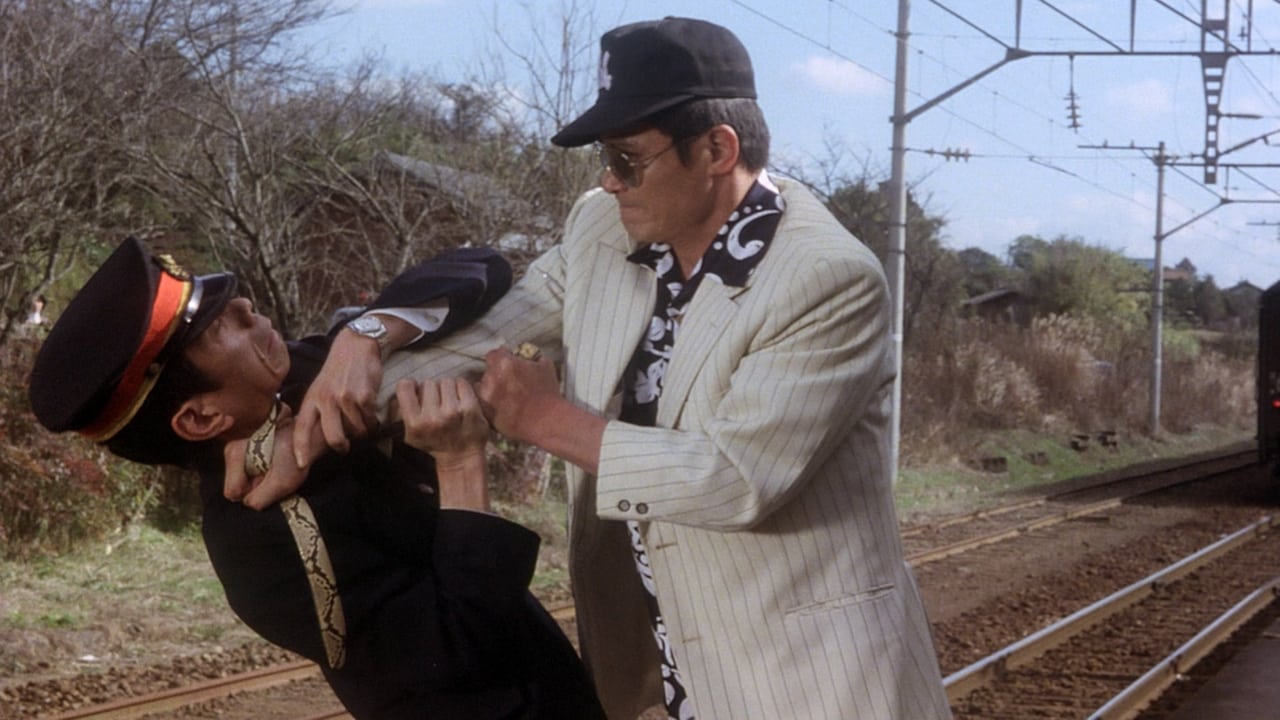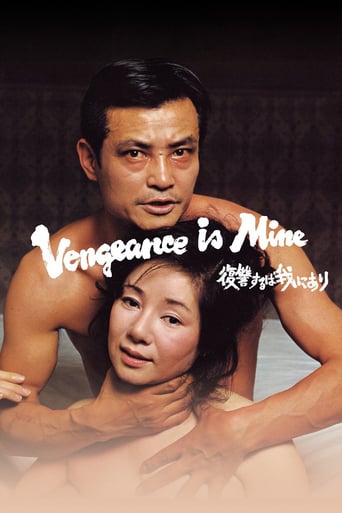Laikals
The greatest movie ever made..!
Ceticultsot
Beautiful, moving film.
Yazmin
Close shines in drama with strong language, adult themes.
Billy Ollie
Through painfully honest and emotional moments, the movie becomes irresistibly relatable
gavin6942
Chronological exploits of Iwao Enokizu (Ken Ogata), a murderous thief on the lam.Take a great story, throw in some religious overtones (who knew that the Catholic Church had an influence in Japan), and you have a good film. Heck, a great film. (That Roger Ebert named this one of his "great films" is quite appropriate.) Not well known to American audiences today, with no known actors or director, it really needs to be re-examined for a new generation. Japan had much more to offer than Samurai films, and this has to be one of the first serial killer movies out there.
edumacated
this film is half delicious--half not.the first half is a seemingly clumsy attempt to narrate the initial crimes of the featured psychopath. the narrative moves quickly through his initial murders using a workmanlike exposition, it shows this man's growing proficiency in the art of quick killing. and that is the first part of the film.the director manufactured a clinical approach to the first half, as shown by his use of clinical titles--suggesting a police report--summing up the effects of the psychopath's murders with little or no lead to the killings.this is the clumsy part of this film, unfortunately the director did not have the luxury of cloning future Hollywood examples to give him a better formula for this type of narration.but the second half of the film is where the director shows the relationship that intrigues him.the second part is enigmatic. it posits the ultimate relations when average persons attempt an average relationship with a homicidal psychopath. and this part is enthralling. the tension is beyond.
Robert J. Maxwell
Yes, the Japanese can have serial killers too, and they can make movies about them, and this is one powerful movie. In its technique, it comes closer to "Henry: Portrait of a Serial Killer" in its episodic and somewhat rambling narrative than to any of the dozens of other American junk being ground out about Ed Gein the Butcher or "Ted Bundy." The serial murderer, a real one, is Iwao Inokizu, played with intensity and charm by Ken Ogata, who passed away a few months ago. There are some discontinuities in the narrative that may make this rather long story a little hard to follow, perhaps especially for Westerners. Iwao's first two murders are both pointless and bloody. Of the remaining three, only one takes place on screen and is relatively brief. And the story is told in flashbacks, with sudden shifts from place to place, and only a handful of characters to serve as anchors in time and space.Man, have the writers got Antisocial Personality Disorder down pat. They illustrate the condition as well as Iwao exemplified it. Iwao kills people -- five all together, matching Jack the Ripper -- for virtually no reason. He poses as a lawyer or a distinguished professor. He moves from city to city relentlessly and cons people out of money with his authoritative charm.The movie is mature. It's made for grown-ups, not children. And not because of any sensationalism. That would be targeting thrill-starved teens of today. But rather because of the absence of sensationalism. It's hard to describe a film about a serial killer as showing a sense of taste but this one does. When Iwao forms a bond with an elderly woman whom he considers his "prison buddy" because she's been in jail, he decides to strangle her. When she walks unwittingly into a darkened room, we see him enter behind her with a rope. And that's it. Cut. It reminds me of the scene in Val Lewton's "The Body Snatchers" when the young girl who sings carols is murdered off screen.Iwao's family were devout Catholics, so much so that when Iwao's father develops impure thoughts about Iwao's wife he asks to be excommunicated. And the family insist that before Iwao is married, his bride convert from Buddhism. This came as a bit of a surprise because in much of Japan religion, although taken seriously, isn't so readily and so intensely divided into sects and denominations. A Shinto shrine at home is in no way incompatible with a Christian wedding and a Buddhist funeral ceremony.There is a scene at the end in which Iwao's father and the daughter-in-law whom he loves, and who loves him, dispose of Iwao's bones after the hanging by flinging them from an isolated hill top. The bones seem to freeze in mid-air. I take this to be not director Imamura's endorsement of anything supernatural, just the symbolic perceptions of Iwao's family. He was so thoroughly rotten, and blood is blood, that it's not easy to get rid of him even after he's dead. The scene is probably more easily understood in Japan, where family honor and shame are considerations to be seriously reckoned with.It's a lengthy film and at times a little confusing, but it packs a real wallop.
GyatsoLa
Nasty, but fascinating account based on the true story of a deeply disturbed serial killer in early 1960's Japan. But this is very different from most movies of the genre in that it gives no neat psychological explanations of why he kills, or indeed gives any particular moral overview. It has a complex structure starting at his capture and working back and forth from there to his childhood and his murders. Its not an easy film to watch in many ways, but via an excellent central performance it manages to convey the complexity of the killer and the people he meets, including the women who (sometimes) love him, without ever taking an easy narrative or moral option. Perhaps the nearest equivalent movie I can think of is the more recent Korean 'Memories of Murder' which likewise breaks the 'rules' set by western serial killer movies, and as such are far more informative and interesting.

